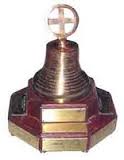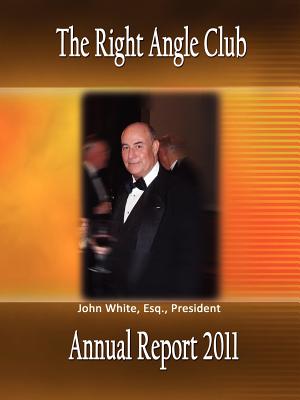Related Topics
Academia (2)
continued.
Favorites - II
More favorites. Under construction.
On Writing History
History doesn't write itself.
Rearranging Mickles, Makes Muckles

|
| Right Angle |
Thank you, Mr. President. Tonight I'm to discuss Right Angle Club's odd contribution to book publishing, with emphasis on history books. To make it easier for the audience to follow, I originally titled the speech Three Threes, for three meanings, in three categories each. It touched -- in threes -- on 1) book technology, 2) variable proportions of facts and opinion, and 3) pitfalls to success. Times three, made nine bases to touch, so that evening at the Philadelphia Club I had to hustle. For a reading audience, however, it's more comfortable to revert to the writing style which I am advocating, since it illustrates as it explains.

|
| Philadelphia-Reflections |
First, let's deconstruct the essay you are reading. Ten years ago, I began taking notes at the Right Angle Club's Friday lunches, writing reviews of the speakers. The younger generation calls it "blogging" when you then broadcast such essays on the Internet; that's how I started the journey, giving it the title of Philadelphia Reflections, which is reached by entering www.Philadelphia-Reflections.com/topic/233.htm in the URL box of any search engine, on any browser. If you prefer, you can simply click on the underlined lettering in this blog, a process called "linking". The blogs in this website concentrate on the Philadelphia "Scene" because that's what our speakers usually do. Our club has met since 1922, so by rights, it might contain ten thousand blogs, but unfortunately, I arrived late, so we only have 3000. Call them 3000 beads in a bowl, subdivided into annual bowls of beads. After more accumulation, they were re-connected as Collections for ease of use in re-assembly. Sometimes they are chronological, sometimes by subject matter; the purpose is to expedite searching for things, placing them in temporary categories, ultimately producing a book, a speech, or an essay. When an archive grows to this size, it's surprising how easy it is to lose something you know you have written.

|
| The Right Angle Book |
After a while themes emerge, so if I picked similar beads from the combined bowl of four hundred, then groups of similar beads become necklaces. Just as green beads make a green necklace, blogs about Ben Franklin make up a Franklin topic. Selected but related necklaces can then be artfully arranged into a rope of necklaces, which is to say, a book about Philadelphia, from William Penn to Grace Kelly. Almost without realizing it, I had been writing quite a big book without foreseeing where it would go. I described this curiosity to my computer-savvy son, who wrote a computer program to make it simple for anyone to rearrange blogs and topics of aggregated material. Simple, that is, for an author re-arrange his random thoughts repeatedly, as if to wander among his own random thoughts, and only in retrospect extract the books. Most authors are not Scotsmen, but they eventually learn that Many a Mickle -- Makes a Muckle. Many authors, however, once imagined they sat down to write a book from start to finish, only to discover one was already there, waiting to emerge if the Mickles could be re-arranged. At the end of the process, it is of course often necessary to insert a few bridging sentences to smooth out the lumps. However, when this outcome hasn't been planned, most authors must totally rewrite their material into a coherent book, once they finally realize where it has been going. Since I am also in the publishing business in a small way, I was able to guide my son into automating several subsequent steps of conventional publishing so any author could perform them without a publisher.
That begins to make book authorship resemble fine art; the artist does it all except marketing. In marketing fine art, it is conventional for the artist to receive 50% of the retail price, whereas in book publishing an author only receives 10%, and must sell five books to achieve an equal result. With refinement, using this system of authorship promises to incentivize the writing of many superior books, in smaller individual numbers, but an overall greater reading audience. True, "file this program" also aspires to eliminate the whole old-fashioned assembly line of publishing, which is in the process of dying anyway, but without a useful replacement.
So here's the cluster of three components -- blogs re-assembled into topics, topics re-assembled into volumes, with copy editing, spell checking and book design mostly performed by the computer. Whether paper books will completely transform into e-books is not so certain, but will mainly depend on computer design, not book design. At the moment, e-books are making their greatest progress in fiction books, for technical reasons. No doubt their negligible production costs will promote the emergence of vanity publishing, works of transient interest, and otherwise unsalable books. For this to work, will require not merely a further computer revolution, but a revolution within information circles. I'm afraid I am too old to indulge in such distant visions and can only hope to advance it a stage or two.
Rossperry1
Rossperry4
1250Gulph
f166f166
Xy34Ty12
July 23,2017
LastPass--call George
Originally published: Sunday, January 20, 2013; most-recently modified: Monday, June 03, 2019